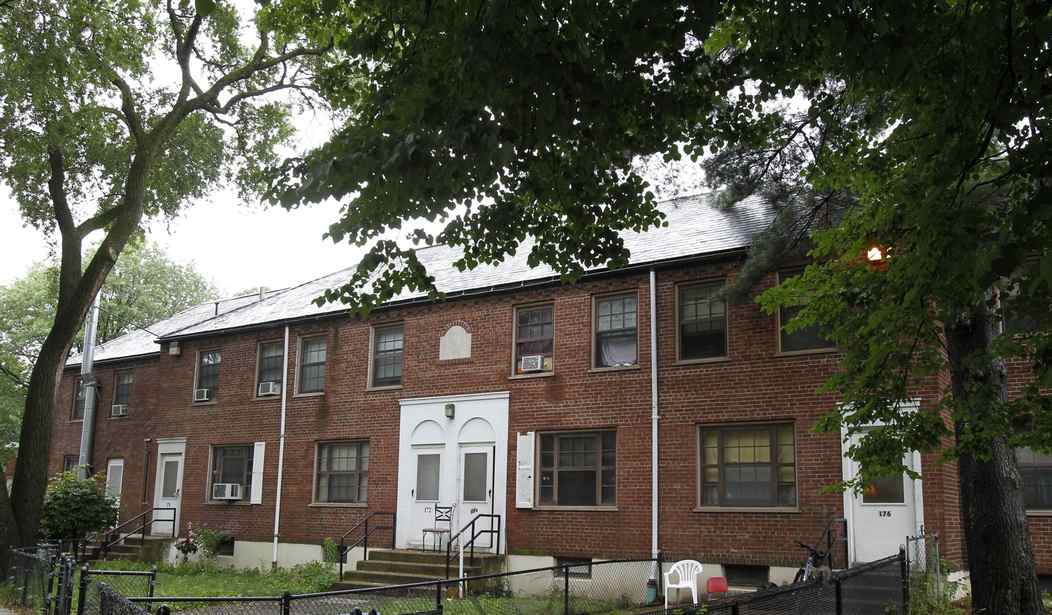Rents have reached record highs.
But have no fear, renters! In the Minnesota cities of St. Paul and Minneapolis, progressives persuaded people to vote for rent control.
That’ll punish those greedy landlords!
Except, profits are what persuade builders to build things. When profits are high, other builders build. That’s what creates more housing and, eventually, lower rents.
Put limits on prices — and those greedy landlords find other places to build.
Whenever rent control is imposed, the supply of rental housing declines. Lots of studies show that.
But the activists don’t want to hear it.
“We don’t need more studies! We don’t need to collect more data! We need action now!” says Claire Bergren of Home to Stay, Minneapolis, in my new video.
St. Paul’s rent control is uniquely strict. Most cities exempt new construction; not St. Paul. They imposed it on future apartments.
“This is such a step backwards,” says Salim Furth, economist at the Mercatus Center. “The market is going to shrink, and quality is going to fall.”
After all, if you are a builder, “Why would you enter a market where it seems like the government is actively trying to hurt you?” asks Furth.
St. Paul developers can simply move just a few blocks over to twin city Minneapolis. Minneapolis also voted to allow rent control. But they haven’t yet imposed it.
Related: You Think Times Are Hard Now? Buckle Up, Buttercup
That’s a reason builders still build in Minneapolis. Building permits rose 65% there last winter, while in St. Paul, they fell 61%.
St. Paul mayor Melvin Carter, who voted for rent control, has suddenly had second thoughts. Now he’s realized, “Turning off our supply of new housing would be disastrous.”
Have the other progressive politicians learned from St. Paul’s mistake? No. They live in a fairy world. They never learn.
“I want us to follow (St. Paul’s) lead,” says Minneapolis City Council Member Aisha Chughtai, the rare rent control supporter who would talk to me.
She claimed that rent control won’t dry up the supply of housing.
“In other cities, we have continued to see development,” Chughtai says.
“What cities?” I ask.
“San Francisco,” she says.
What? San Francisco!?
What an absurd example. San Francisco is famous for its housing crisis.
“Builders still build in Minneapolis,” I tell her. “But you’re not going to get apartments by pushing this.”
Here she pauses for a full 17 seconds — an eternity in a video interview — before answering, “I’m going to maintain that guaranteeing housing for people and making sure that they can stay in their homes matters more than anything else.”
That may work for insiders like her. Renters will be able to stay in run-down apartments forever. But newcomers will have no chance.
“I live in the only town in Maryland that has rent control,” says Furth. “We’ve had it since the ’70s. We have not built a single multifamily building since that law was passed.”
Chughtai is a socialist. That helps explain why she doesn’t understand how houses, apartments, and most everything else get built.
I asked the city councilwoman where socialism has worked (it hasn’t).
After another long pause, she answers, “I’m doing a just fine job of representing my community.”
She isn’t.
The late economist Walter Williams explained, “Short of aerial bombardment, the best way to destroy a city is through rent controls.”
Rent control once destroyed much of my town, New York City. Landlords, who couldn’t raise rents enough to make a profit, stopped making repairs. Then many burned down their own buildings to collect insurance. Between 1970 and 1980, much of the Bronx ended up losing 97% of their buildings to fire and abandonment.
Under rent control, says Furth, “Landlords just don’t reinvest.”
Today, rents are up, and that’s hard. But in the long run, rent controls will only make the problem worse.









Join the conversation as a VIP Member